Photo: Victoria Stevens
interview
Meet A Recording Academy Member: Why Brandy Clark Joined The World's Leading Society Of Music People
Brandy Clark has written songs for a litany of Nashville greats, and been in the spotlight as a singer/songwriter for a decade. Here's why she's a Recording Academy member.
The wait is almost over for the 2024 GRAMMYs — and we're entering the most crucial period during GRAMMY season, when the Recording Academy Membership makes its voice heard.
During First Round Voting — which spans the period between Oct. 11 and Oct. 20, 2023 — the people who comprise the world's leading society of music people will decide who will be nominated to take home golden gramophones at the 66th GRAMMY Awards.
That Membership body includes Brandy Clark, a leading light in the Nashville scene whose songs have been recorded by the likes of Sheryl Crow, Miranda Lambert, Darius Rucker, Kacey Musgraves, and more. Clark's latest, self-titled album was released in 2023; nine-time GRAMMY winner and 24-time nominee Brandi Carlile produced it.
And clearly, simply making music isn't the end of the road for Clark; by participating in the Recording Academy's processes as a member, she helps give back to the music community that elevated her.
Read on for an interview with Clark about why she joined the Academy.
When and why did you join the Recording Academy?
Oh, man. I joined years ago. I always wanted to be a member. First, I was a non-voting member, and some of it was [that] I wanted to go to the GRAMMY block party that they had every year in Nashville. I always thought that looked really, really cool.
But I just thought it was important as a musician to be a part of the organization and take it very seriously. When I had enough album credits to be a voting member, that was a really big deal to me.
To you, what does it mean to be an RA member?
Well, I feel responsible for the music that's being put out there. Not just myself as a recording artist myself, but also just as a member, what we choose to shine a light on.
And also, to help music for the future [through] GRAMMYs In The Schools. I try to get involved in that part of things as well. I think it's the one organization that is run by creatives, and I think it's our job to shape not only the music of today, but of tomorrow.
From your perspective, why should others also join the Recording Academy?
For that same reason. The more diverse voices we have — the more voices we have — the better the organization's going to be.
I think you've got to care about it. Like I said, it's the one organization that's run by creatives, and so we've got to be involved.
Why is it important for Recording Academy voting members to vote in the annual GRAMMYs process?
I think a lot of people complain when they see the nominations come out, and most of the people complaining are people who don't vote. Voting's the only power any of us have in any place, whether it be within the Recording Academy or within our own government. You want yourself represented? Vote.
Perhaps some of the complainers would do right by getting involved.
They have no idea. A lot of people who complain, they see a headline or something, and they think they know what's going on with committees and all that.
I was a Nashville board member and really got to see a lot inside the organization. And I think when you really get involved, you understand why things are done the way they're done. No organization is perfect, but the GRAMMYs work really hard to keep things fair when it comes to voting. I think the people who are complaining, they're not involved.
What projects are cooking for you right now?
Well, I had a record come out in May. It's a self-titled album, even though it's my fourth album. Brandi Carlile produced it and I'm very proud of it. I'm out touring it right now. It's my rawest record I've made sonically in particular, and I'm just proud of it.
Can you talk about what Brandi brought to the record?
I'd never worked on a solo project with another recording artist being the producer. I was involved in [Ashley McBryde's] Lindeville record and John Osborne produced that. That was my first experience with another artist to produce something. But I wasn't at the helm of that.
When Brandi approached me about us working together, I thought that's kind of cool.I enjoyed Lindeville, and so I dove in with her. I think having another recording artist behind the glass is an advantage because she comes at it as a recording artist, and so she wants to get to the truest part of me or whoever she's working with.
And she really did. She asks tough questions, she challenges. She's a world-class singer, so she can say, "Hey, how about you do it like this and really do it?" And brings so many gifts to the table that she shares with whoever she's making a record with.
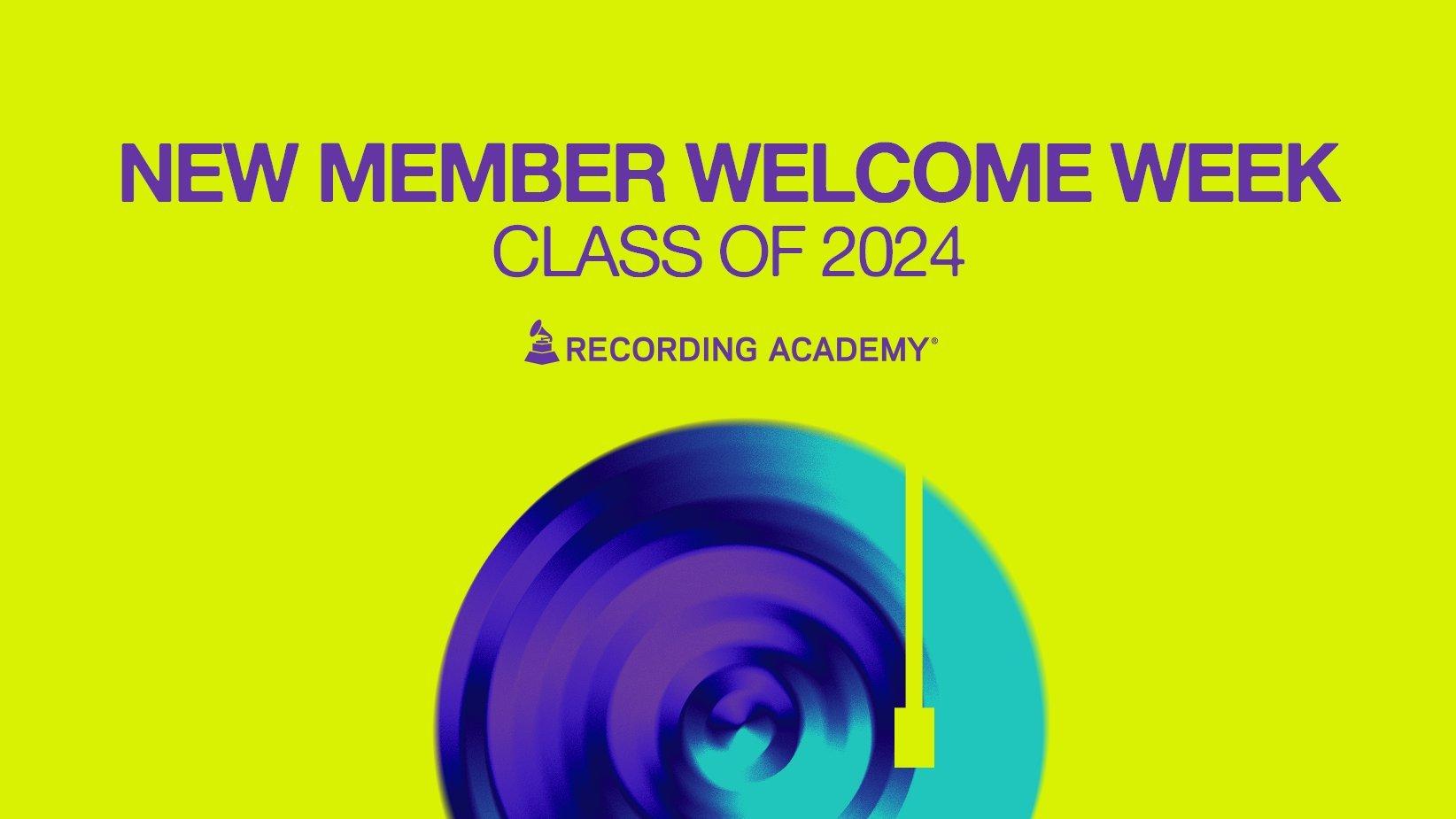
Graphic courtesy of the Recording Academy
news
An Exclusive Look Inside The Recording Academy's New Member Welcome Week 2024: CEO Harvey Mason jr. Chats With Lainey Wilson, DEI, Advocacy & Much More
The Recording Academy introduced its 2024 New Member Class to a range of activities designed to connect invitees with key Academy leaders, foster community engagement, and enhance understanding of the various benefits associated with Academy membership.
The world's leading community of music professionals has welcomed its 2024 New Member Class.
Earlier this summer, the Recording Academy extended invitations to more than 3,900 creators and music industry professionals for its 2024 New Member Class. During our annual New Member Welcome Week initiative, held virtually last week from Aug. 19 — Aug. 23, those new members explored a host of opportunities to engage directly with key Academy leaders, spark new connections within our vibrant creative community, and learn how to maximize their Recording Academy membership.
Building on last year's success, the annual New Member Welcome Week program was designed to not only connect new members with key Academy leaders and peers but also to foster community engagement and deepen the understanding of the significant impact of their membership. This initiative is a cornerstone of the Academy's effort to welcome and integrate new talent into its ranks.
This year, the event expanded with over a dozen Meet the Academy and Member Mix events, showcasing the extensive network and diverse opportunities within the Recording Academy. These events highlighted the work of various Academy affiliates and programs, including the Songwriters & Composers Wing and the Producers & Engineers Wing. Special guests such as rapper, DJ and GRAMMY nominee Paul Wall, singer/songwriter and pianist Avery Sunshine, and GRAMMY and Latin GRAMMY Award winner, percussionist, and composer Tony Succar provided insightful discussions and interactions, enriching the experience for all attendees.
Here's some highlights from New Member Welcome Week 2024 — for those who may have missed out and to inspire those who want to be part of the next membership class!
Read more: 4 Ways To Maximize Your Recording Academy Membership
New Member Welcome Week 2024 commenced with an engaging conversation between Recording Academy CEO Harvey Mason jr. and GRAMMY-winning country music sensation Lainey Wilson. The intimate chat detailed Mason jr.’s creative journey, how he leads the Academy's efforts on behalf of the music community, and why being active in your Academy membership is more critical now than ever.
The Recording Academy's Diversity, Equity & Inclusion (DEI) team hosted an impactful informational session. Led by Ryan Butler, Vice President of Diversity, Equity & Inclusion for the Recording Academy, and DEI Manager Ricky Lyon, the discussion explored various initiatives within the DREAM (Diversity Reimagined by Engaging All Musicmakers) Initiative, which aims to foster a more inclusive music industry for all. This year's class of invited new members, for example, is notably diverse, comprising 45% women, 57% people of color, and 47% under the age of 40, moving closer to the Academy's goal of adding 2,500 women Voting Members by 2025.
The Recording Academy's Awards team hosted a comprehensive webinar on the Online Entry Process (OEP) for the 2025 GRAMMYs, officially known as the 67th GRAMMY Awards, which included a full walkthrough of the brand-new entry platform and equipped Academy members with essential knowledge for participating in the upcoming GRAMMY Awards season.
Meet Your Advocacy Team, a session led by Todd Dupler, Chief Advocacy & Public Policy Officer for the Recording Academy, and Michael Lewan, Managing Director of Advocacy & Public Policy at the Academy, introduced members to the crucial advocacy work the organization undertakes to safeguard creators' rights and highlighted the importance of legislative engagement. Next up: Stay involved in your Academy membership by joining your peers on Oct. 1 for Music Advocacy Day, the largest grassroots movement for music and its makers. This is your opportunity to speak with members of Congress about A.I., protecting your voice and likeness, and much more.
As the Recording Academy welcomes its 2024 New Member Class, the organization reaffirms its commitment to serving the music community, advocating for creators' rights, and supporting music people through organizations like MusiCares and the GRAMMY Museum. Our ongoing mission ensures that the Academy remains a pivotal force in the global music landscape and that music remains an indelible part of our culture.
2024 New Member Class invitees and those interested in Recording Academy membership are also encouraged to join our newly launched New Member Class broadcast channel on Instagram to learn more about the Recording Academy and membership-related updates.
Learn more about the Recording Academy's membership and membership requirements. Read our Membership Resource Guide to learn more about the Recording Academy, its affiliates, and our membership and advocacy efforts.
Latest News & Exclusive Videos
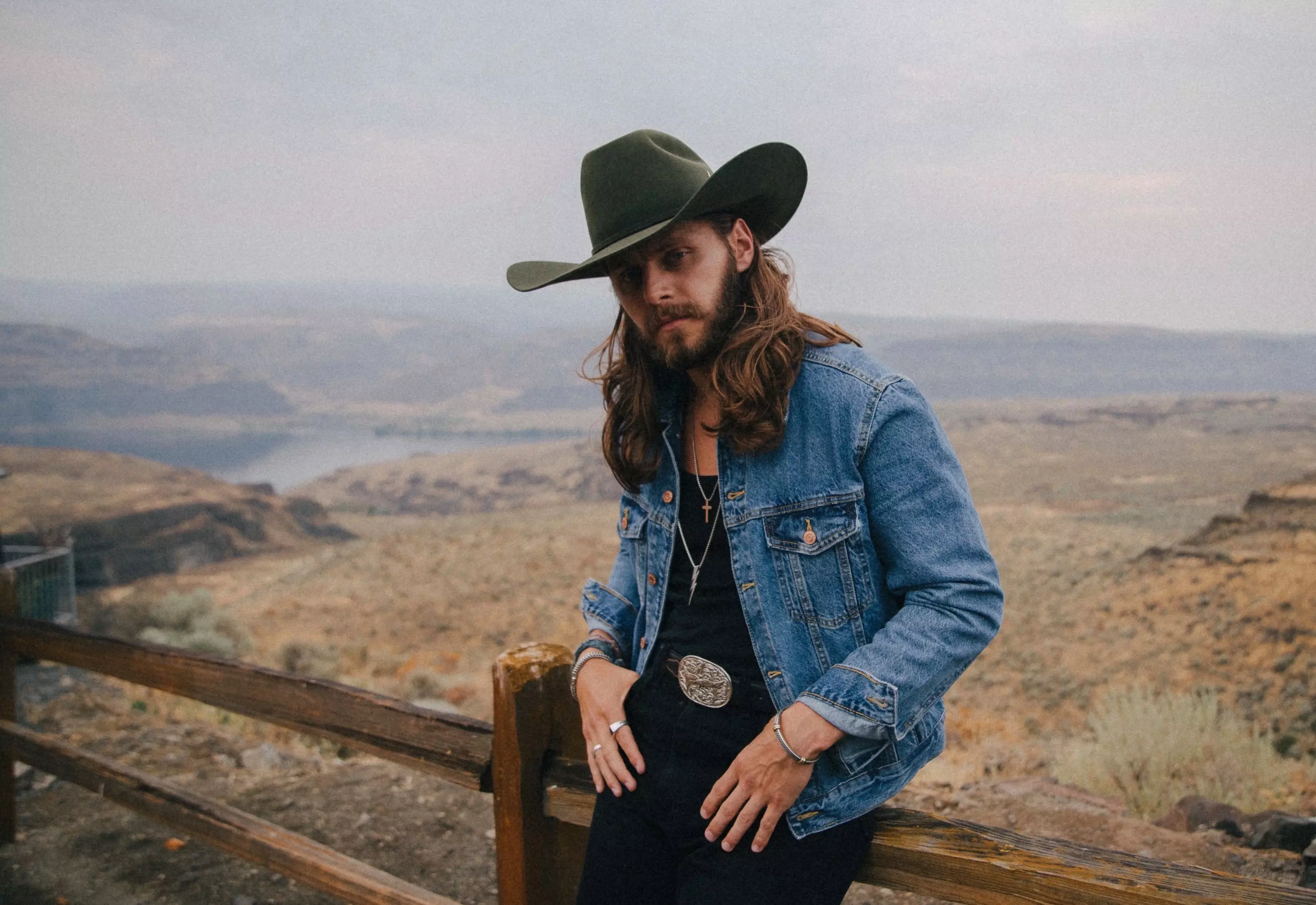
Warren Zeiders' Big Year: The Country Star Recounts His Journey From 'Pretty Little Poison' To 'Relapse'

Watch MonoNeon Share His Bass
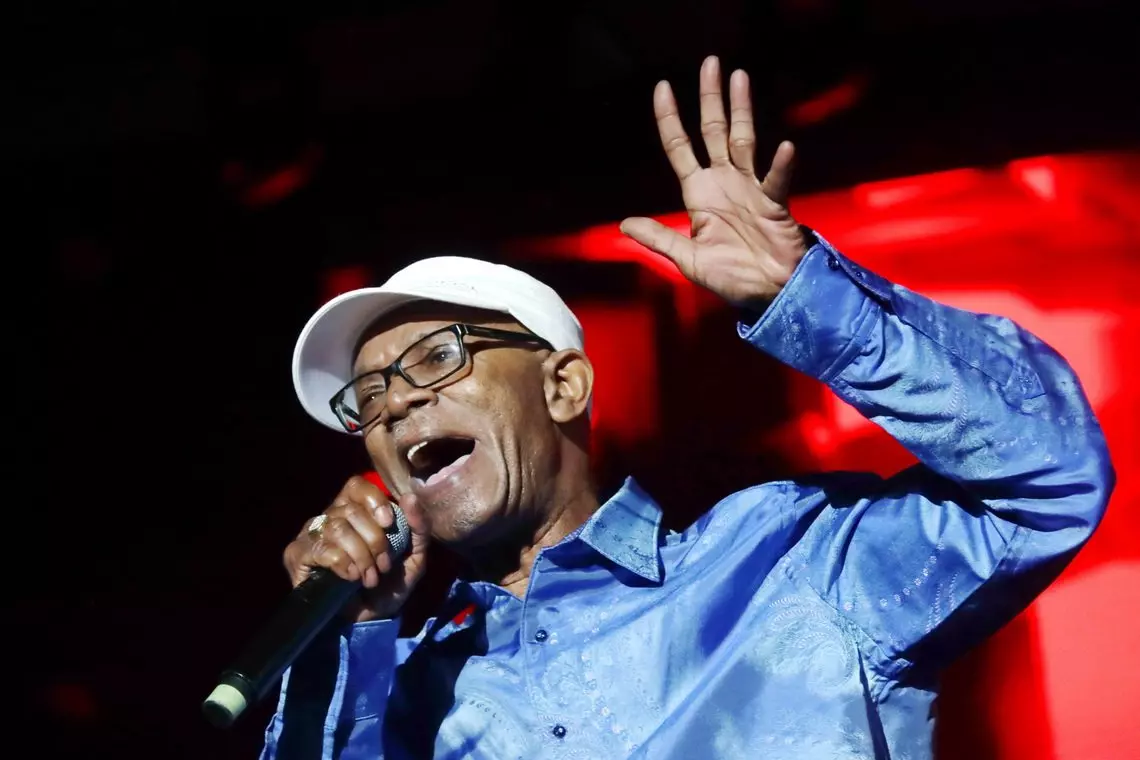
Living Legends: Beres Hammond On His Enduring Career, Timeless Music & 'Brand, Jamaica!'
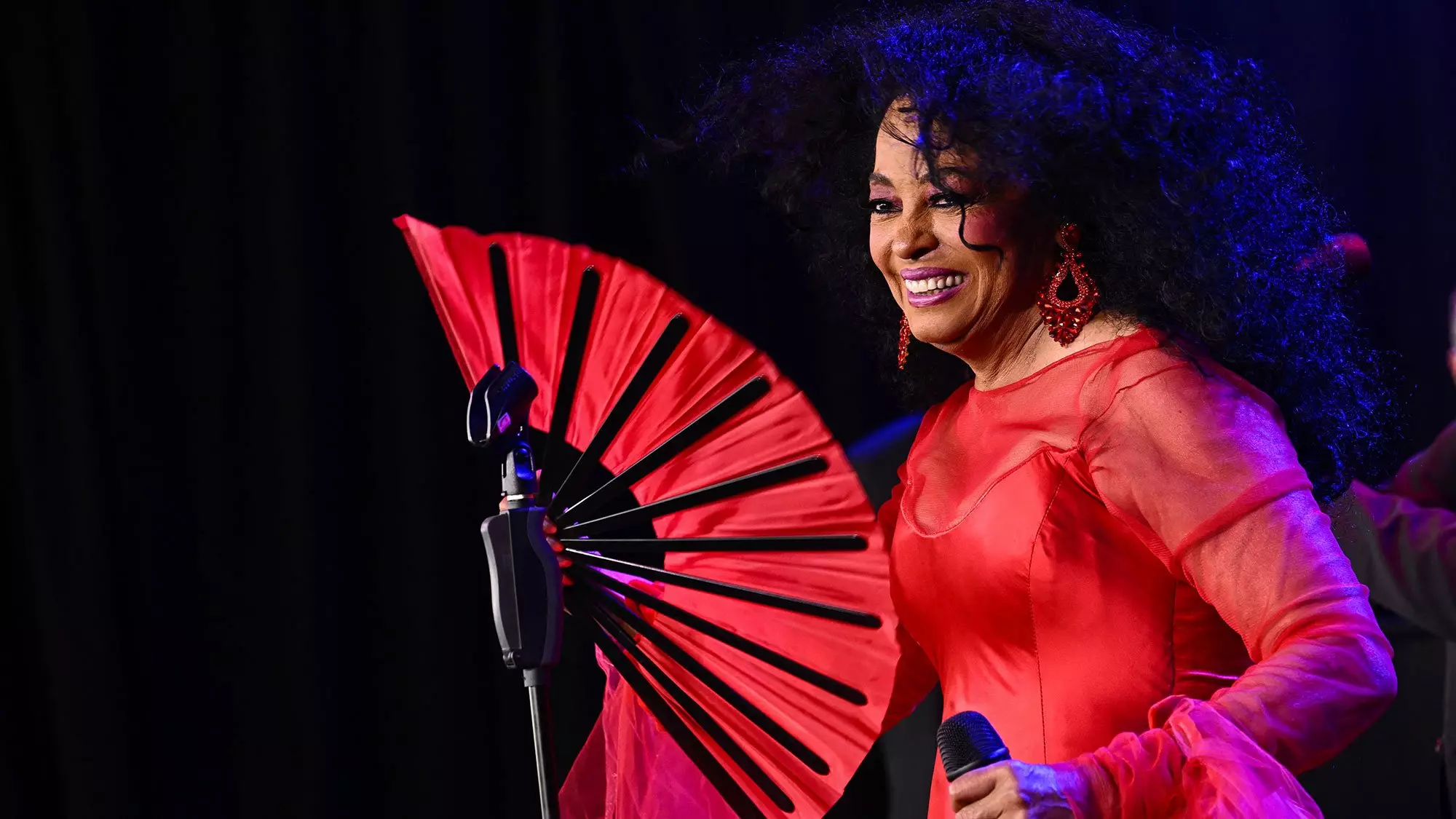
Get Ready For Fool In Love Fest With This Soulful Playlist: Hits & B-Sides From Chaka Khan, Thee Sacred Souls, Smokey Robinson & More
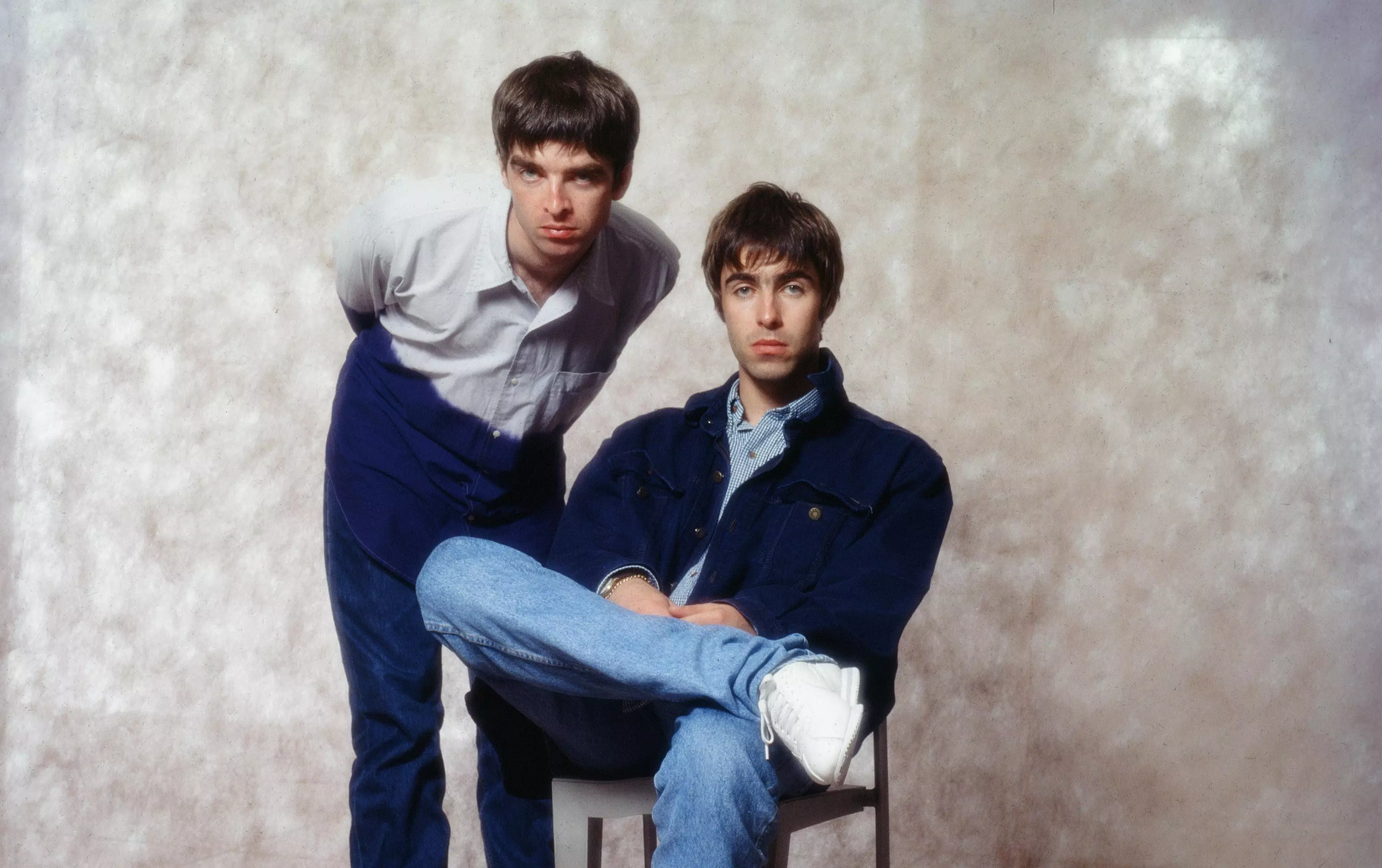
10 Ways Oasis' 'Definitely Maybe' Shaped The Sound Of '90s Rock
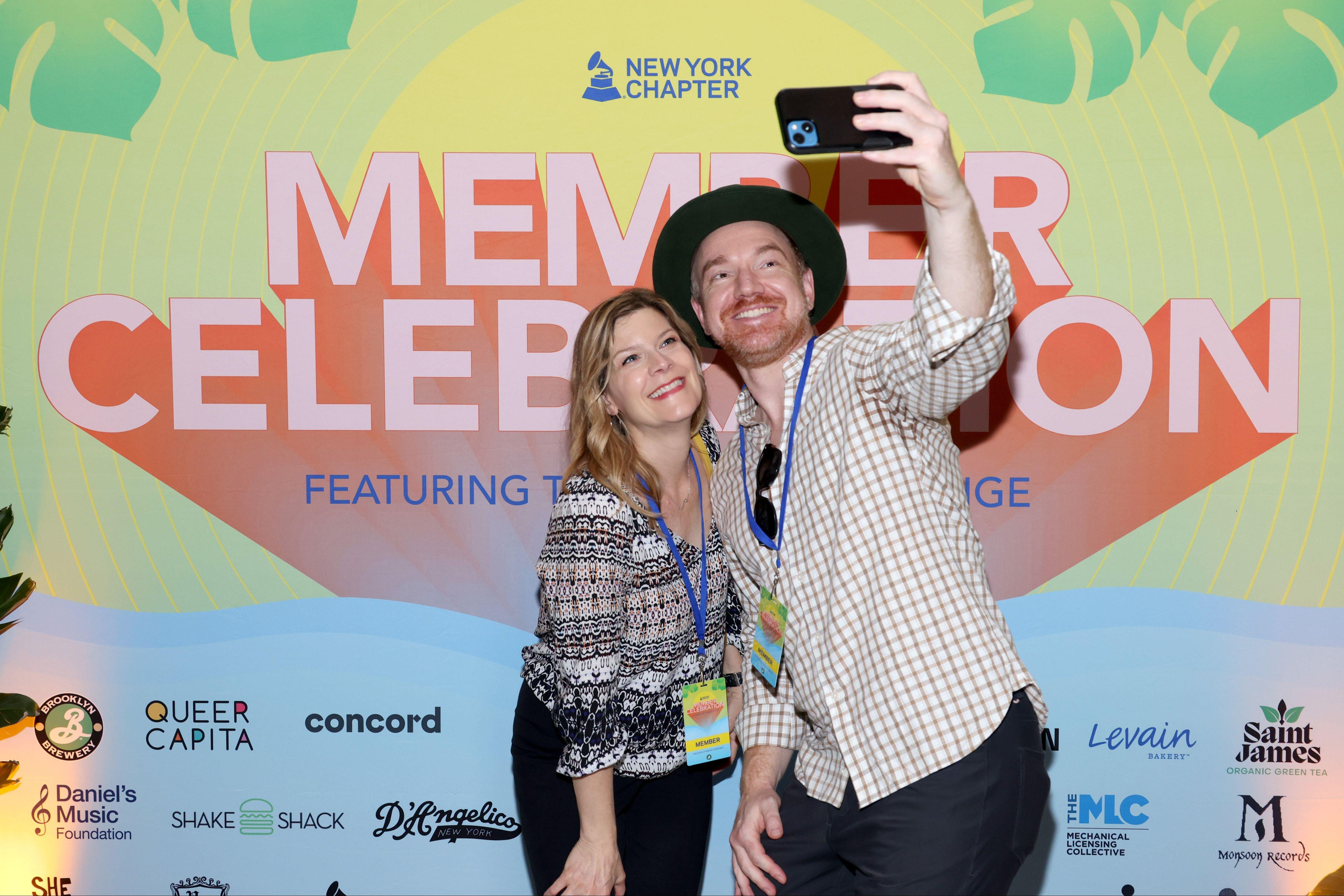
Photo: Rob Kim for Getty Images© 2024
news
At Their Member Celebration, The Recording Academy's New York Chapter Sees A Joyous Meeting Of The Musical Minds
"All the stars aligned for this night," Chapter Senior Executive Director Nick Cucci says of the July event at Brooklyn Brewery.
On July 29, a diverse, talented group of over 200 Recording Academy New York Chapter members filled Brooklyn Brewery in Williamsburg to mingle, network, and talk shop.
The special occasion was the New York Chapter Member Celebration — its first summer event — and the attendees were eager to make new friends and connections, while embracing old ones over free food and drinks.
Held inside Brooklyn Brewery's spacious wooden tasting room, where guests could try any of the local brewer's beers on draft and bites from Shake Shack — the official burger partner of the New York Chapter Member Celebration As members milled about the space, New York-bred DJ Morsy — who's also a music producer, audio engineer and proud member of the Class of 2024 — provided upbeat grooves to make Monday feel like a full-on party.
An hour or so into the lively event, Nick Cucci, the Senior Executive Director of the New York Chapter, and Lee Dannay, the new NY Chapter President, briefly paused the music and conversation to share their gratitude for their community — which grew by 600 members to 3501 this year — and the many sponsors that made the evening possible. "We can’t do this without our partners and our sponsors," Dannay said.
The Connect Lounge, located among large, shiny vats of beer still in the brewing process, provided opportunities to network with many of the event's community partners. Daniel's Music Foundation, GRAMMY Go, MusiCares, Music Managers Forum US, Platinum Academy, The Mechanical Licensing Collective, Sound Royalties, RAMPD, Queer Capita, and She Is The Music all had tables set up to showcase their important work and how to get involved.
Inside the Connect Lounge, attendees could watch clips from GRAMMY Go — the Recording Academy's creator-to-creator learning platform —featuring useful courses on music production, songwriting and audience building from a star-studded cast of GRAMMY-winning and nominated artists including Victoria Monét, Janelle Monáe and Hit-Boy.
The Lounge also boasted more delicious treats; fresh, gooey cookies from Levain Bakery — the official cookie partner of the New York Chapter Member Celebration — and organic flavored green tea from Saint James.
Towards the end of the evening, the music was briefly paused once again to reveal the lucky winner of a raffle. NYC-based, Nigerian-born Afrobeats artist Teemanay took home a brand new D'Angelico Premier Brighton electric guitar, donated by the craft NYC guitar company.
Even after 10 p.m. when the event ended and brewery closed, many guests mingled outside to continue conversations, exchange information and introduce themselves to anyone they might not have had the chance to yet. Recording Academy New York Chapter members are not only talented and driven creators and music industry professionals, they are clearly committed to supporting each other and building community.
"We haven’t done an all-member celebration, nor have we ever done a program in Brooklyn during my tenure. All the stars aligned for this night. [It was a] great turnout from our members and an iconic New York City venue — Brooklyn Brewery! Perfect all around," Cucci says of the event.
The Chapter extends an extra special thanks to all their beloved partners, especially the Annual New York Chapter partners: Concord Theatricals, Sound Royalties, and the Mechanical Licensing Collective; the Official Burger of the New York Chapter Member Celebration, Shake Shack; and the Official Cookie Partner of the New York Chapter Member Celebration, Levain Bakery.
New York is the Recording Academy's second-biggest chapter. It not only serves New York City but the entire Northeast, eastern Canada, and Western Europe.. The Member Celebration is just one of many gatherings hosted by this East Coast chapter, which also include other networking opportunities , and intimate conversations with music creators and professional producers as part of the Community Connections series, to name a few.
If you are an artist or music professional interested in joining your local Recording Academy Chapter, you can find more information here. The Academy also accepts recommendations for new members.
Latest News & Exclusive Videos

Warren Zeiders' Big Year: The Country Star Recounts His Journey From 'Pretty Little Poison' To 'Relapse'

Watch MonoNeon Share His Bass

Living Legends: Beres Hammond On His Enduring Career, Timeless Music & 'Brand, Jamaica!'

Get Ready For Fool In Love Fest With This Soulful Playlist: Hits & B-Sides From Chaka Khan, Thee Sacred Souls, Smokey Robinson & More

10 Ways Oasis' 'Definitely Maybe' Shaped The Sound Of '90s Rock
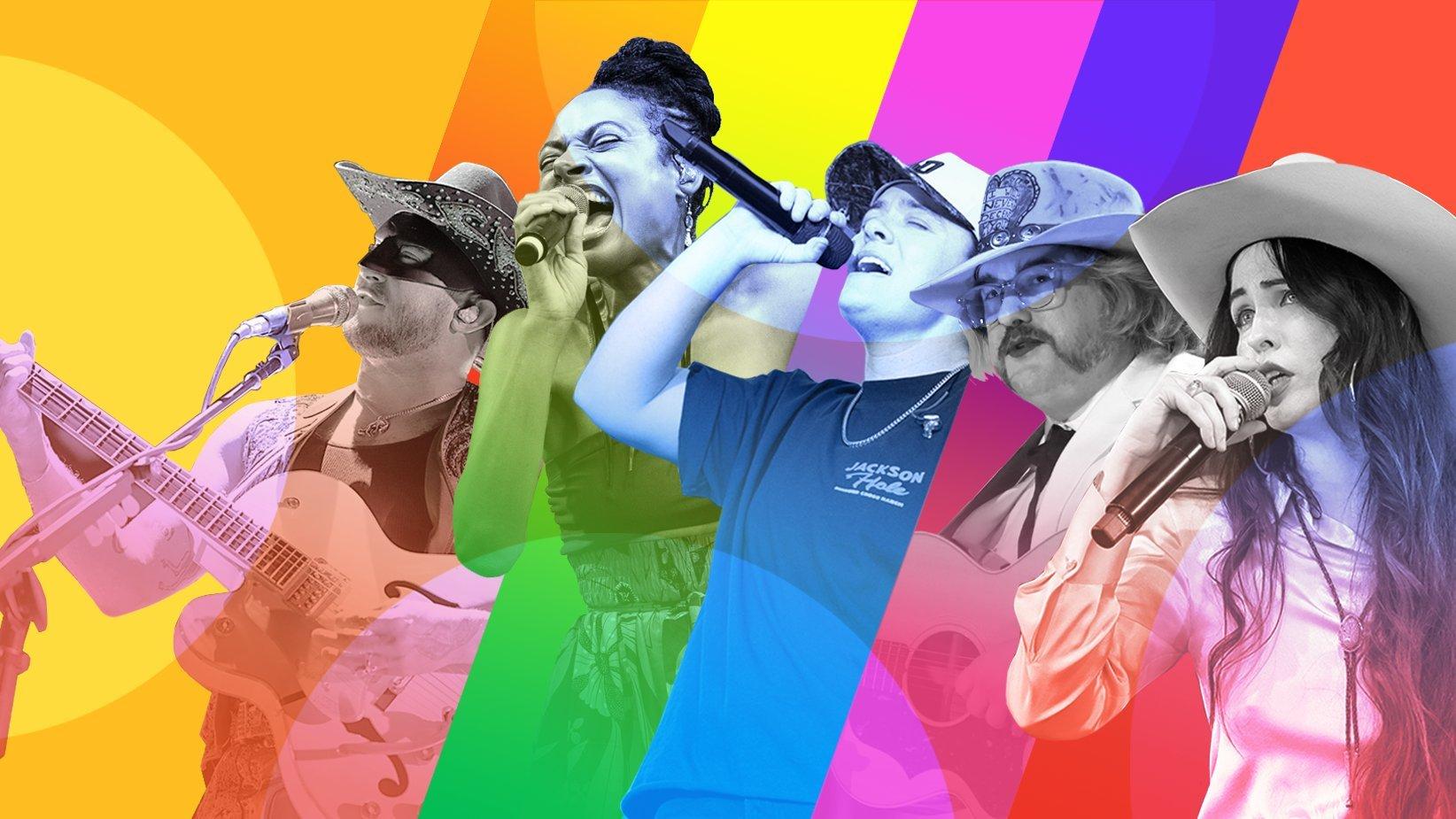
Photos (L-R): Jeff Hahne/Getty Images, Erika Goldring/Getty Images, Erika Goldring/Getty Images, Jason Kempin/Getty Images for Americana Music Association, Frazer Harrison/Getty Images for Stagecoach
feature
How Queer Country Artists Are Creating Space For Inclusive Stories In The Genre
As country music continues its global explosion, the genre is seeing a growing number of artists in the LGBTQIA+ community — including Adeem the Artist, Lily Rose and Jaime Wyatt — blaze a trail toward acceptance.
When country singer/songwriter Jaime Wyatt announced she was queer with the release of her second album, 2020's Neon Cross, she was convinced doing so would destroy her career. Instead, something shifted — not only was she more free to be herself and to date women openly, but many fans reacted positively, too.
"Several times on the road I've had fans come up to me with their same sex partner, and they're like, 'Hey, we feel safe here. It's so awesome because we both love country music, and we're not out of the closet, and we're not out to our families, but we can be here,'" Wyatt says.
Modern country music is generally perceived as a conservative genre, and deep-rooted cultural and industry biases have long excluded LGBTQIA+ (and BIPOC) artists and stories from the genre. For example, in 2010, when successful mainstream country artist Chely Wright came out, her career stalled and record sales halved. Kacey Musgraves was criticized for lyrics supporting same-sex love in her beloved anthem, "Follow Your Arrow." More recently, even, Wyatt walked out of a recording session after the owner of the space asked if she was singing "'some gay s—.'"
But Wyatt is also one of a growing number of country artists who, in recent years, have blazed a trail through country music and toward acceptance. Among them, Adeem the Artist, Mya Byrne, Brandi Carlile, Brandy Clark, Mary Gauthier, Lizzy No, Orville Peck, Lily Rose, and Allison Russell. Together, they're celebrating queerness alongside their love for the genre, and pushing it into diversity with patience, tenacity, and darn good country music.
"If you listen to popular music, or if you listen to hip-hop music, it feels like there's a broader diversity to a lot of subcultures as far as what you're able to access," nonbinary country singer/songwriter Adeem the Artist says. "Whereas with country music, it's very linear, it's very myopic, and singular in its expression."
By way of broadening country's storytelling, Adeem plays a honky-tonk blend of classic and '90s country music that's sonically aligned with the deep musical traditions in Tennessee, where they now live. Lyrically, though, their propensity for gorgeous, frankly worded songs complicate stereotypical southern narratives in rare and provocative ways. On White Trash Revelry, their 2022 studio album, they grapple with racism, economic entrapment, gun violence, and family heritage. And their latest, Anniversary, released in May, includes songs about mental health, the poignance of parenthood, and the pain and fear of being a queer person in a world that threatens their existence.
Indeed, some of the places in the U.S. with the strongest ties to country music remain the least hospitable to queer people. Just last year, Tennessee, home of Nashville, the country music capital of the world, passed a total of 10 bills aimed at LGBTQIA+ people, while Texas, perhaps country music's second-best known state, passed 20 percent of all anti-LGBTQIA+ legislation in the U.S. What's more, LGBTQIA+ people and culture have been targeted by numerous attacks around the world — including the Pulse nightclub and Club Q shootings stateside — in the last few years alone.
For many, the consequences of not coming out, of not sharing their full selves with the world, are risky, too. Growing up, Wyatt had no role model to show her it was okay to be queer. She struggled for years with mental health and substance abuse and was convicted of robbing her heroin dealer as a young adult. "I needed to see someone who looked like me when I was a young child," Wyatt says. "And maybe I wouldn't have been a dope fiend in jail."
But while straight white men comprise most of country music's standard slate of forebearers, women and people in the BIPOC and LGBTQIA+ communities have contributed to the genre since its beginning. Notably, it was Sister Rosetta Tharpe, a queer Black woman, who in the 1950s introduced reverb to gospel and rhythm and blues music — and in doing so, she forever changed guitar playing, and inspired some of country music's biggest trailblazers, from Elvis to Johnny Cash.
In 1973 — four years after the Stonewall uprising kickstarted a widespread gay liberation movement — Patrick Haggerty and his band Lavender Country released what is generally considered the first gay country album. But after it sold out its first pressing of 1000 copies, the album was mostly forgotten until 1999, when the Journal of Country Music published an article hailing Haggerty as "the lost pioneer of out gay country music." Haggerty began performing again and in 2014, indie label Paradise of Bachelors reissued the Lavender Country album, securing Haggerty status as a grandfather figure to queer country.
Haggerty's reissue landed in a different world than the album's original run. In the interim, a handful of artists released more queer country music, including Jeff Miller, aka "John Deere Diva," known for his George Strait parody, "Not Really Strait," as well as Doug Stevens and the Outband's When Love Is Right and Sid Spencer's Out-N-About Again, which put lyrically gay songs to country music.
In 2011, shortly before the Lavender Country reissue, queer country singer/songwriter and music scholar Karen Pittleman convened the first Gay Ole Opry in Brooklyn's now defunct Public Assembly performance space, launching more than a decade of queer country events, tours and a far-reaching network of performers and supporters. And in 2015, gay marriage became legal nationwide.
As progress has accelerated culturally in the near decade since, it has in country music, too. In 2018, Paisley Fields' debut album Glitter and Sawdust merged cowboy grit with queer raunch. In 2019, Lil Nas X's "Old Town Road" provoked country music to re-consider the nature and identity of country music. In 2021, T.J. Osborne of the Brothers Osborne became the first openly gay male artist signed to a major record label; a year later, the duo's song "Younger Me" — which was written in response to T.J.'s coming out — became the first country song with an LGBTQIA+ theme to win a GRAMMY. And this Pride Month, longtime LGBTQIA+ supporter (and GLAAD's 2023 Excellence in Media Award recipient) Maren Morris declared on Instagram, "happy to be the B in LGBTQ+."
"We as queer fans deserve to have songs that speaks specifically to us," says Rachel Cholst, a queer writer and educator. "And if that means putting in same gender pronouns, then we deserve that too. And if that makes a straight person uncomfortable, I don't know what to tell you. I've grown up my entire life having to internally change the pronouns to the love songs that really moved me."
Cholst started writing about music when she realized she couldn't be the only queer country fan out there. Her work aims to make queer country music accessible, and she has run the Adobe and Teardrops blog for more than a decade. In 2022, Cholst launched Rainbow Rodeo, a zine about queer country music, which appears bi-annually in print and regularly online.
"Everyone just assumed that country music is this one thing, and it never occurred to them to go look for it. That tells you a lot about how country music wants to present itself as an industry," Cholst says. "If we erase anyone who's not straight, anyone who's not white, then what you're saying is, you want those people to be erased from the conversation, from the culture."
Beyond using she/her pronouns in love songs (which she didn't get to do on her first album, Felony Blues), Wyatt's powerful, steely queer country music complicates social consciousness. Incisive and elegant in her delivery, she's equally compelling chronicling her conviction and jail time on Felony Blues, confronting demons and figuring out who she is on her Shooter Jennings-produced second album, Neon Cross, and outlining her hopes and frustrations for the world on her third album, 2023's sultry, groovy, Feel Good.
Wyatt's knack for catchy and advocacy-laced country bangers is clearest in "Rattlesnake Girl," one of her most popular songs. In it, she offers an anthemic celebration of joy unfettered: "I see my sweet friends out on the weekend/ They all look happy and gay," and a barbed warning to anyone who might impinge on that happiness: "Thank you kindly, don't walk behind me/ I've seen people slip that way/ And if you try me, boot heels beside me/ I might have to make your day."
Queer country music means something a little different to each artist. For many, it's about much more than simply being a queer person performing country music. Adeem the Artist considers queer country its own genre, complete with specific rules — many of which have nothing to do with sexual or gender orientation.
"It is explicitly political in nature. It is often kind of raunchy," they assert. "There's an element to queer country that is confrontational, that is willing to create discomfort for the sake of a relief that leans towards some greater social awareness."
To some degree, raising awareness and representation — which is essential for inclusion and acceptance — requires a bit of self-tokenization, Adeem says. "The very, very basic act of referring to me as a person who is queer, who is trans, who is nonbinary, who is whatever, those labels only do good as much as they illuminate the differences between us and the fact that I am more difficult for some people to relate with."
Adeem and Wyatt both operate within the alt-country scene, which has been marginally more inclusive than mainstream country over the years. Recently, though, rising country musician Lily Rose cracked through with her viral breakup single, 2020's "Villain." On her latest EP, Runnin' Outta Time (which she released in May), she sings a high-octane pop/country mix about her values and relationships. It's a well-worn country music landscape that has been almost exclusively dominated by heterosexual white men.
"To be one of the first to literally [and] figuratively, carry the flag... it makes me really proud. And it has its heavy moments for sure," Rose says. "Night after night, when I get to meet fans and see comments on social media that they feel seen for the first time in the genre, it's really special and it makes every single second of hard work to get here worth it."
The day after Runnin' Out of Time dropped, Rose made her Grand Ole Opry debut with two songs from the album, "Back Pew" and "Two Flowers"; Adeem and Wyatt also played the Opry for the first time in the last year as well. The Opry, one of country music's oldest and most lauded tastemakers, has welcomed a number of queer artists in the last few years, signaling a subtle shift toward a more inclusive country music institution. (In addition, all three artists recently scored high-profile touring spots: Rose with Shania Twain and Sam Hunt, Adeem with Tyler Childers and Jason Isbell and the 400 Unit; and Wyatt wrapped up her first headlining tour.)
For Pittleman, an essential part of making music is ensuring space for anyone who wants to make music to do so, regardless of how they look or identify. "Most people who like country music, they just want to hear country music," Pittleman says. "I want to have a good time, too. But you have to ask at a certain point, 'Who is invited to the good time?'"
As she insists, there's a long way to go. In a digital world, radio play doesn't offer a complete picture, but it remains a dominant force in country music. For decades, women have been played sparingly on country radio and artists of color and queer musicians featured far less, a shortcoming which SongData's principal investigator, Jada Watson, spent years studying. Her research concludes that women country artists are played roughly 29 percent of the time, Black artists 5 percent, and other artists of color 7 percent. Queer artists, Watson estimates, make up less than 1 percent of radio play.
"The real problem is who's making those decisions; who has the power and as a result, who has the power and the resources to record their music, to distribute their music, to get it out on a broader scale," Pittleman suggests. "We have to make sure that everyone who's called to make the music has the resources and the power to make it and bring it into the world."
And in spite of multitude setbacks and naysayers, queer artists are creating country music. As Pittleman wrote in a 2020 essay in the Journal of Popular Music Studies titled "You're My Country Music," one of the joys of singing queer country music is making country music, plain and simple. "The point is to mark the deepest moments of human connection, our truest hopes and heartbreaks, and turn them into a sound that gives us joy and strength," she says.
"Because sometimes you love a culture that doesn't love you back," Pittleman continues on the Gay Ole Opry's about page. "We do it because we love the music and want to build a community to support queer country musicians. We do it because everybody needs a honky-tonk angel to hold them tight. We do it because we believe in country music for all."
Why 2024 Is The Year Women In Country Music Will Finally Have Their Moment
PRIDE & Black Music Month: Celebrating LGBTQIA+ & Black Voices
Listen To GRAMMY.com's 2024 Pride Month Playlist Of Rising LGBTQIA+ Artists
9 New Pride Anthems For 2024: Sabrina Carpenter's "Espresso," Chappell Roan's "Casual" & More
What's The Future For Black Artists In Country Music? Breland, Reyna Roberts & More Sound Off
Why Beyoncé Is One Of The Most Influential Women In Music History | Run The World
9 Ways To Support Black Musicians & Creators Year-Round
How Beyoncé Is Honoring Black Music History With 'Cowboy Carter,' "Texas Hold Em," 'Renaissance' & More
The Evolution Of The Queer Anthem: From Judy Garland To Lady Gaga & Lil Nas X
15 LGBTQIA+ Artists Performing At 2024 Summer Festivals
50 Artists Who Changed Rap: Jay-Z, The Notorious B.I.G., Dr. Dre, Nicki Minaj, Kendrick Lamar, Eminem & More
Fight The Power: 11 Powerful Protest Songs Advocating For Racial Justice

How Rihanna Uses Her Superstardom To Champion Diversity | Black Sounds Beautiful

How Beyoncé Has Empowered The Black Community Across Her Music And Art | Black Sounds Beautiful
5 Women Essential To Rap: Cardi B, Lil' Kim, MC Lyte, Sylvia Robinson & Tierra Whack
Celebrate 40 Years Of Def Jam With 15 Albums That Show Its Influence & Legacy

Watch Frank Ocean Win Best Urban Contemporary Album At The 2013 GRAMMYs | GRAMMY Rewind
A Brief History Of Black Country Music: 11 Important Tracks From DeFord Bailey, Kane Brown & More
10 Women In African Hip-Hop You Should Know: SGaWD, Nadai Nakai, Sho Madjozi & More
10 Artists Shaping Contemporary Reggae: Samory I, Lila Iké, Iotosh & Others
The Rise Of The Queer Pop Star In The 2010s
How Sam Smith's 'In The Lonely Hour' Became An LGBTQIA+ Trailblazer
How Queer Country Artists Are Creating Space For Inclusive Stories In The Genre

How Jay-Z Became The Blueprint For Hip-Hop Success | Black Sounds Beautiful

How Kendrick Lamar Became A Rap Icon | Black Sounds Beautiful
Dyana Williams On Why Black Music Month Is Not Just A Celebration, But A Call For Respect
6 LGBTQIA+ Latinx Artists You Need To Know: María Becerra, Blue Rojo & More
7 LGBTQ+ Connections In The Beatles' Story
Breaking Down Normani's Journey To 'Dopamine': How Her Debut Album Showcases Resilience & Star Power
10 Alté Artists To Know: Odunsi (The Engine), TeeZee, Lady Donli & More

Celebrating Black Fashion At The GRAMMYs Throughout The Decades | Black Music Month
FLETCHER Is "F—ing Unhinged" & Proud Of It On 'In Search Of The Antidote'
For Laura Jane Grace, Record Cycles Can Be A 'Hole In My Head' — And She's OK With That
15 Essential Afrorock Songs: From The Funkees To Mdou Moctar
50 Years In, "The Wiz" Remains An Inspiration: How A New Recording Repaves The Yellow Brick Road
Why Macklemore & Ryan Lewis' "Same Love" Was One Of The 2010s' Most Important LGBTQ+ Anthems — And How It's Still Impactful 10 Years On
Songbook: The Complete Guide To The Albums, Visuals & Performances That Made Beyoncé A Cultural Force

Why Cardi B Is A Beacon Of Black Excellence | Black Sounds Beautiful
Queer Christian Artists Keep The Faith: How LGBTQ+ Musicians Are Redefining Praise Music
9 Revolutionary Rap Albums To Know: From Kendrick Lamar, Black Star, EarthGang & More
9 "RuPaul's Drag Race" Queens With Musical Second Acts: From Shea Couleé To Trixie Mattel & Willam
5 Black Artists Rewriting Country Music: Mickey Guyton, Kane Brown, Jimmie Allen, Brittney Spencer & Willie Jones
How 1994 Changed The Game For Hip-Hop

How Whitney Houston’s Groundbreaking Legacy Has Endured | Black Sounds Beautiful
LGBTQIA+-Owned Venues To Support Now

Celebrate The Genius Of Prince | Black Sounds Beautiful

Explore The Colorful, Inclusive World Of Sylvester's 'Step II' | For The Record
Black-Owned Music Venues To Support Now
5 Artists Fighting For Social Justice Today: Megan Thee Stallion, Noname, H.E.R., Jay-Z & Alicia Keys
Artists Who Define Afrofuturism In Music: Sun Ra, Flying Lotus, Janelle Monae, Shabaka Hutchings & More
5 Trans & Nonbinary Artists Reshaping Electronic Music: RUI HO, Kìzis, Octo Octa, Tygapaw & Ariel Zetina
From 'Shaft' To 'Waiting To Exhale': 5 Essential Black Film Soundtracks & Their Impact
5 Emerging Artists Pushing Electronic Music Forward: Moore Kismet, TSHA, Doechii & Others
5 Artists Essential to Contemporary Soca: Machel Montano, Patrice Roberts, Voice, Skinny Fabulous, Kes The Band

How Quincy Jones' Record-Setting, Multi-Faceted Career Shaped Black Music On A Global Scale | Black Sounds Beautiful
5 Black Composers Who Transformed Classical Music
Brooke Eden On Advancing LGBTQ+ Visibility In Country Music & Why She's "Got No Choice" But To Be Herself
Let Me Play The Answers: 8 Jazz Artists Honoring Black Geniuses
Women And Gender-Expansive Jazz Musicians Face Constant Indignities. This Mentorship Organization Is Tackling The Problem From All Angles.

Histories: From The Yard To The GRAMMYs, How HBCUs Have Impacted Music
How HBCU Marching Band Aristocrat Of Bands Made History At The 2023 GRAMMYs
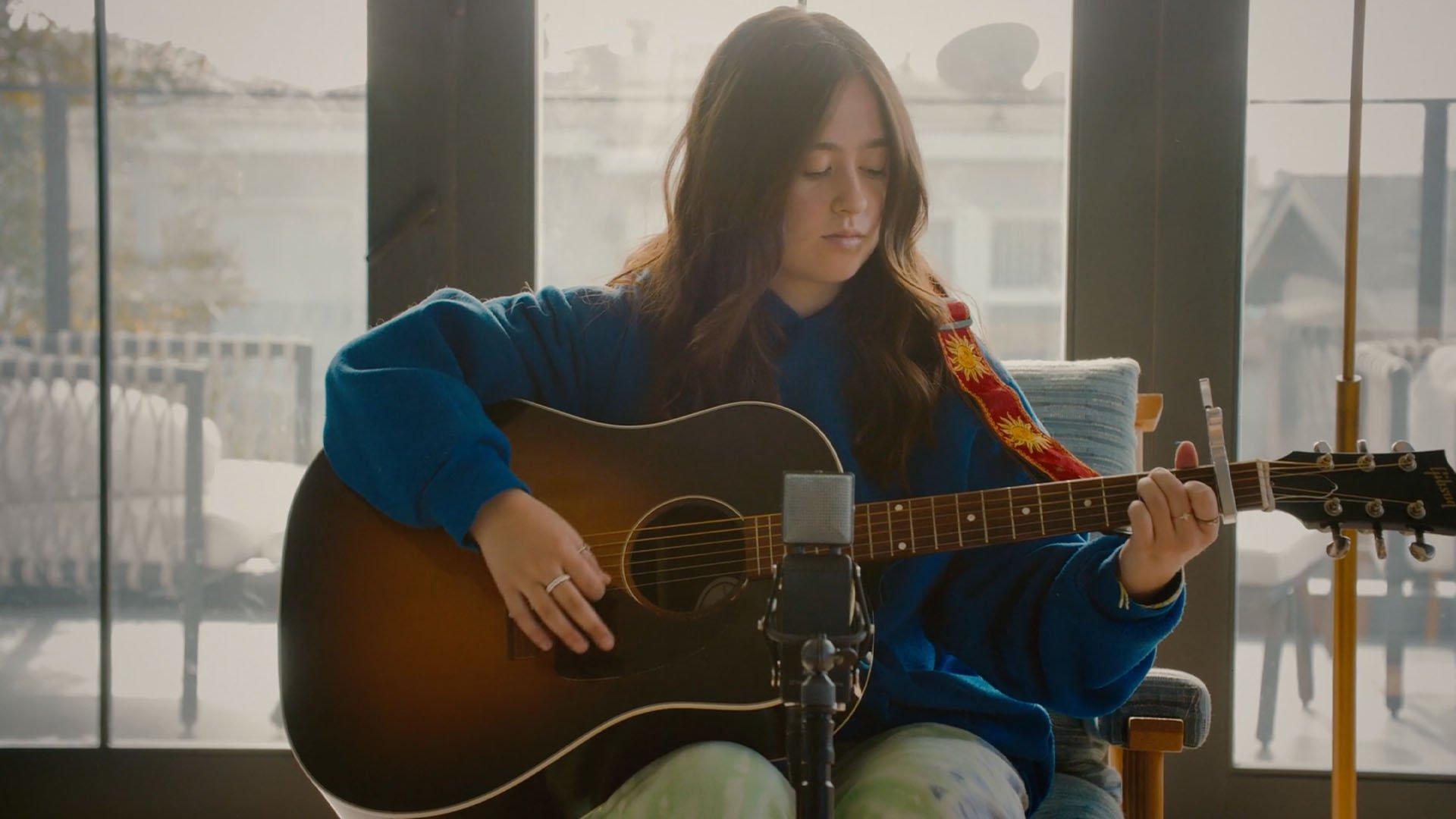
Photo: Courtesy of Tish Melton
video
Press Play: Watch Tish Melton Preview Debut EP With A Stripped-Down Performance Of "Sober"
Indie pop newcomer — and Brandi Carlile's mentee — Tish Melton premieres "Sober," an emotional track from her upcoming EP, 'When We're Older,' out March 1.
Beneath the empty bottles, Tish Melton wants to know if her love is true; to her, drunken confessions of love mean nothing. It's what happens when the party's over and no one is watching — that's when she sees that person at their most authentic.
"You're standing close/ But you're so far away/ Your eyes are closed/ But you see me anyway," Melton sings on the bridge of her emotional track "Sober." "And I swear you told me you love me on the walk home/ If you meant it, I'll never know/ I think we should stay sober."
In this episode of Press Play, the indie pop newcomer premieres "Sober" with a raw and intimate acoustic performance.
"Sober" is an unreleased track from her upcoming first EP, When We're Older, which arrives on March 1. Melton previously released three singles in 2023, "Damage," "The Chase," and "Michelle."
As she prepares her debut project, Melton already has a major supporter in her corner: nine-time GRAMMY winner Brandi Carlile, who has been a mentor to Melton since recognizing her talent at her debut show at the Troubadour in Los Angeles.
"Tish is so young and so brilliant," Carlile, who produced When We're Older, revealed in a press statement. "Like most lessons in life, I learned this one while I thought I was teaching it. We should guide youth in music, but there is no question that it should lead."
Watch the video above to hear Tish Melton's honest performance of "Sober," and check back to GRAMMY.com for more new episodes of Press Play.
How 'Venus' Helped Zara Larsson Find Joy In Her Journey: "I Have Cemented Myself As An Artist"
